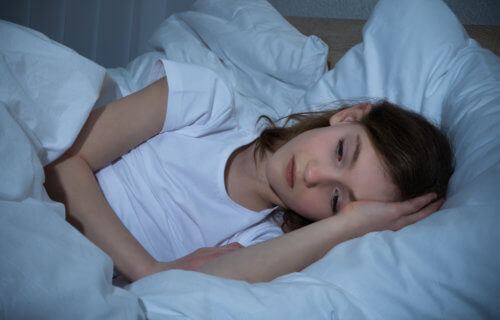DUNEDIN, New Zealand — When children don’t get enough sleep, parents don’t get enough sleep. Apparently, another thing these sleep-deprived children can’t get enough of is food. There appears to be a strong correlation with poor sleep affecting a child’s appetite in a not-so-healthy way, according to a recent study.
Scientists at the University of Otago in New Zealand reveal that children who don’t get enough sleep eat more calories than their well-rested peers. The study reports that sleep-deprived kids ate 96 more calories from junk food and slightly less healthy food than they otherwise would. After accounting for extra calories, the young ones burnt by being awake for longer ate 63 more calories in a day.
The little ones who lost the most sleep had even bigger changes to what they ate at mealtimes and how much junk food they consumed. Children who lounged around more ate more junk food and more in the evening while exercising led them to eat more healthy food.
The results held up when they were adjusted to account for the amount of exercise children do and how much time they spend sitting down, which means those factors can be discounted as an explanation for the difference. The research team in New Zealand say parents should consider running a bath or encouraging their kid to read before bed if they want to help them get a good night’s sleep.
Why does poor sleep lead to an unhealthy diet for children?
It has long been known that sleep deprivation is linked to obesity in children, which is likely to be caused by their diet. However, it had been unclear whether the amount of time we spend exercising or resting has an effect on how many calories we eat.
As there are a limited number of hours in a day, sleeping less will inevitably lead to an increase in sedentary time and/or physical activity but previous studies have tended not to account for the simultaneous changes in these daily behaviors.
For the study, the team analyzed data on 105 eight to 12-year-old kids who took part in the Daily, Rest, Eating, and Activity Monitoring (DREAM) clinical trial. Just over three fifths (61 per cent) of participants were of a healthy weight while the rest of them were overweight or obese.
The children went to bed an hour earlier than normal for a week and an hour later than normal for a week. For a week in between they went to bed at their usual time. They wore a wrist device all day and night which tracked how much time they spent sleeping, sitting around, doing light exercise and doing moderate to vigorous exercise.
Participants were asked to recall what they had eaten and drank for the last 24 hours twice in the week where they got less sleep. They were asked about how much energy and ultra-processed food they ate as well as their intake of core healthy foods and unhealthy snacks.
Researchers estimated the association between sleep loss and its effect on a child’s appetite, independent of sedentary time and physical activity, as well examining how diet changed in relation to changes in sedentary time and physical activity. The 82 children with complete data lost 48 minutes of sleep each night but they also woke up for eight minutes less each night.
They spent almost all of this extra time during the day sitting around or doing light exercise such as walking. They only spent four more minutes of their time doing more intense exercise.
“Together, these findings show that changes to dietary intake, not reductions in physical activity, explain why not getting enough sleep increases the risk of overweight and obesity in childhood,” says the study’s principal investigator Professor Rachael Taylor from the University of Otago, in a statement. “Although improving our sleep doesn’t usually come to mind first when we think of managing our weight, it might just be a good option.”
The findings were presented at The International Congress on Obesity in Melbourne, Australia.
South West News Service writer Gwyn Wright contributed to this report.
